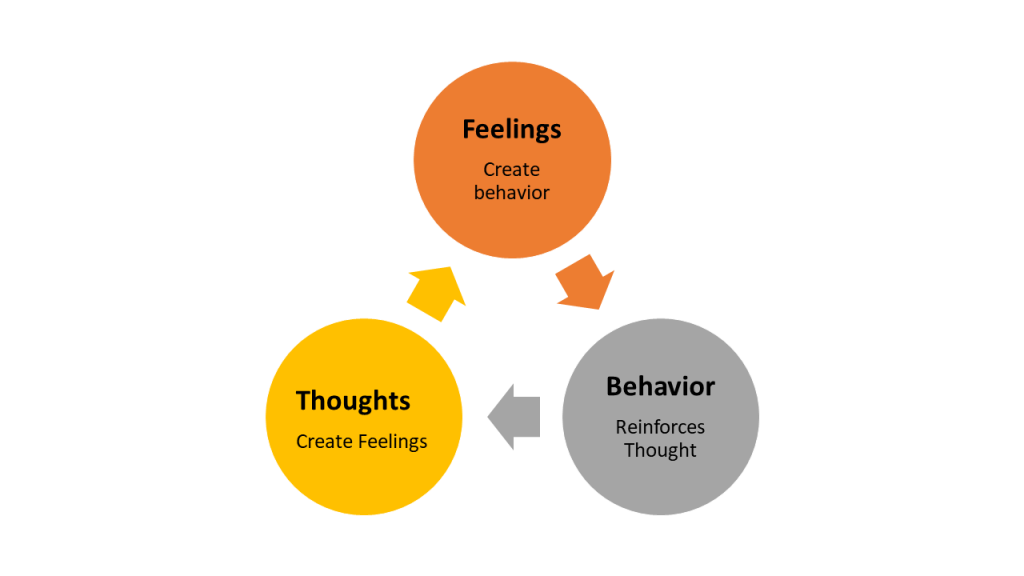10.3 Treatment for Personality Disorders
Clients with some types of personality disorders do not exhibit insight for their condition and are unlikely to seek treatment. They often go undiagnosed unless they seek treatment for another psychiatric or medical diagnosis. Some may also be forced to seek treatment at the influence of family members or as required by law if legal infractions have occurred. Personality disorders can be challenging for mental health professionals to treat. Individuals with personality disorders struggle to recognize that their difficulties in life are related to their personalities. They may truly believe their problems are a result of other people or outside factors which makes treatment difficult. It is very common for clients with personality disorders to also have substance abuse, anxiety, depression, or eating disorders.[1]
Treatment for personality disorders is tailored to the specific disorder and individual client needs, and it is a gradual process. Psychotherapy is the first line of treatment for personality disorders. Medications may also be prescribed to treat underlying co-occurring conditions such as anxiety or depression.
Psychotherapy
During psychotherapy, an individual can gain insight and knowledge about the personality disorder and what is contributing to their symptoms. They talk about their thoughts, feelings, and behaviors and ideally will develop an understanding of the impact of their thoughts and behaviors on themselves and others. They learn strategies for managing and coping with their symptoms. This treatment can help reduce problematic behaviors that impact an individual’s relationships and functioning.[2]
Common types of psychotherapy used to treat personality disorders are as follows[3]:
- Cognitive behavior therapy
- Dialectical behavior therapy
- Interpersonal therapy
- Psychoanalytic/psychodynamic therapy
- Psychoeducation
Cognitive behavior therapy (CBT) teaches the client to become more aware of the way they think so they can ultimately change the way they behave.
Dialectical behavior therapy (DBT) is a type of cognitive behavioral therapy that was originally created for clients with borderline personality disorder to help them cope with stress, control emotions, and establish healthy relationships. It is considered the gold standard for treating borderline personality disorder and is also used for other types of disorders. The client learns how to be aware of how thoughts, feelings, behaviors link together. They learn how to use their senses to be aware of what is happening around them and how to use strategies (such as mindfulness, distress tolerance, interpersonal effectiveness, and emotion regulation) to react calmly in a crisis, avoid negative impulsive behavior, and improve relationships.[4] See Figure 10.11[5] for an illustration of how thoughts, feelings and behaviors are linked together.

Interpersonal therapy focuses on developing healthy relationships with others. Negative aspects of relationships, such as social isolation and aggression, are identified, and strategies to improve relationships are discussed and planned.
Psychodynamic therapy promotes self-reflection and self-examination of problematic relationship patterns and unresolved conflicts. It can bring awareness of how one’s past has an influence on one’s present behavior.
Mentalization-Based Therapy: A type of psychotherapy designed to help individuals improve their ability to understand and interpret their own and others’ mental states—such as thoughts, feelings, and intentions. The goals are to improve self-awareness and understanding of one’s own emotions, enhance empathy and understanding of others’ perspectives. This subsequently helps individuals develop better interpersonal skills and communication.
Psychoeducation teaches the client about their medications, psychotherapies, and support groups available in the community. Wraparound services may be planned with an individualized plan of care that brings multiple services/supports together for the client.
Pharmacotherapy
There are no specific medications approved to treat personality disorders. However, clients may be prescribed medications by their health care provider as adjunctive treatment to psychotherapy Medications that can be fatal in overdose should be avoided or used with caution. Benzodiazepines can be especially toxic when combined with alcohol or opioids, and they can also cause behavioral disinhibition in clients with personality disorders.[6]
The following medications may prescribed for symptoms associated with personality disorders: commonly used to treat them include the following[7]:
- Cognitive-perceptual symptoms (e.g., hallucinations and paranoid ideation): Treated with low-dose antipsychotics such as aripiprazole, risperidone, and quetiapine.
- Impulsive behaviors (e.g., self-injury, theft, interpersonal conflict): Impulsivity and behavioral dysregulation may be treated with mood stabilizers (such as valproate and lamotrigine).
- Affective dysregulation (e.g., depressed mood, mood lability, anxiety, anger): Treated with mood stabilizers and low dose antipsychotics, which are more effective than antidepressants in this population.
Support Groups
Support groups and supportive relationships can be helpful for sharing experiences with others who are going through similar situations. Talking with trusted friends or family members can also provide emotional support and encouragement.
- Halter, M. (2022). Varcarolis’ foundations of psychiatric-mental health nursing (9th ed.). Saunders. ↵
- American Psychiatric Association. (n.d.). What are personality disorders? https://www.psychiatry.org/patients-families/personality-disorders/what-are-personality-disorders ↵
- American Psychiatric Association. (n.d.). What are personality disorders? https://www.psychiatry.org/patients-families/personality-disorders/what-are-personality-disorders ↵
- Schimelpfening, N. (2021). What is dialectical behavior therapy (DBT)? Verywell Mind. https://www.verywellmind.com/dialectical-behavior-therapy-1067402 ↵
- "Dialectical Behavior Therapy by Kim Ernstmeyer.png" by Kim Ernstmeyer for Chippewa Valley Technical College is licensed under CC BY 4.0 ↵
- Nelson, K. J. (2024). Personality disorders: Overview of pharmacotherapy. UpToDate. https://www.uptodate.com ↵
- Nelson, K. J. (2024). Personality disorders: Overview of pharmacotherapy. UpToDate. https://www.uptodate.com ↵
A type of cognitive behavioral therapy that provides clients with new skills to manage painful emotions and decrease conflict in relationships.
Therapy which focuses on developing healthy relationships with others.
Therapy which promotes self-reflection and self-examination of problematic relationship patterns and unresolved conflicts.
A type of psychotherapy designed to help individuals improve their ability to understand and interpret their own and others' mental states such as thoughts, feelings, and intentions. The goals are to improve self-awareness and understanding of one's own emotions, enhance empathy and understanding of others' perspectives. This subsequently helps individuals develop better interpersonal skills and communication.
Education which teaches the client about their medications, psychotherapies, and support groups available in the community

